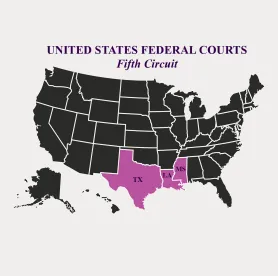In Roels v. Valkenaar, a shareholder filed a shareholder derivative suit against former and current officers and directors of the company based on multiple claims of breach of fiduciary duty. No. 03-19-00502-CV, 2020 Tex. App. LEXIS 6684 (Tex. App.—Austin August 20, 2020, no pet. history). The defendants filed a motion to dismiss, and the trial court denied it. The defendants appealed, and the court of appeals reversed in part and affirmed in part.
The plaintiffs’ first claim dealt with certain interested-direction transactions that were loans from the company. The court dismissed these claims because the evidence showed that regarding one transaction that there was director consent to the loan and regarding the other loans that there was not sufficient evidence of damages. The court stated:
Self-dealing (i.e., an “interested transaction”) may constitute breach of an officer’s or director’s fiduciary duty to the corporation. However, we need not determine whether the shareholders met their prima facie burden as to the element of breach because we conclude that they have not met the burden as to the element of damages. To prove the damage-to-plaintiff or benefit-to defendant element of a claim for breach of fiduciary duty based on self-dealing, a plaintiff must demonstrate that the fiduciary obtained a benefit for itself either at the expense of its principal or without equally sharing the benefit with the principal. While the shareholders have alleged in conclusory fashion that the loans contained “non-market terms” and have “disproportionately benefitted” Roels and Barshop, they have not identified any specific harm to the Company or benefit to the defendants as a direct result of the loans.
Id.
The court affirmed the denial of the motion to dismiss regarding the plaintiff’s misappropriation of company resources claim as against one defendant. That defendant was an officer that inappropriately used company assets to do due diligence on a transaction:
[W]e conclude that based on the above evidence it may be reasonably inferred that Roels pursued the acquisition with the intent that he benefit from the Company’s expenditure of funds on due diligence, as he initially entered into the letter of intent on behalf of MBlock, brought the unsolicited proposal to the Company and advanced it (including restructuring the deal in MBlock’s favor), voted against the proposal on behalf of the Company, and then closed on the deal on behalf of MBlock.
Id.
The court dismissed the plaintiffs’ dereliction of duty claim due to the business judgment rule. The court stated:
In Texas, the business judgment rule generally protects company officers and directors for alleged breaches of duties that are based on actions that are negligent, unwise, inexpedient, or imprudent if the actions were “within the exercise of their discretion and judgment in the development or prosecution of the enterprise in which their interests are involved.” In contrast, “an officer or director’s breach of duty that would authorize court interference ‘is that which is characterized by ultra vires, fraudulent, and injurious practices, abuse of power, and oppression on the part of the company or its controlling agency clearly subversive of the rights of the minority, or of a shareholder, and which, without such interference, would leave the latter remediless.’” Essentially, the business judgment rule, as pronounced long ago by the supreme court in Cates and reaffirmed more recently in Sneed, operates at this stage of a lawsuit as a requirement that a plaintiff plead more than “mere mismanagement,” neglect, abuse of discretion, or unwise and inexpedient acts to state a cause of action… Because the shareholders have not identified clear and specific evidence of conduct by Pabst that does not fall within the business judgment rule, we conclude that the trial court should have granted his motion to dismiss as to the shareholders’ “dereliction of duties” claims.
Id.




 />i
/>i
